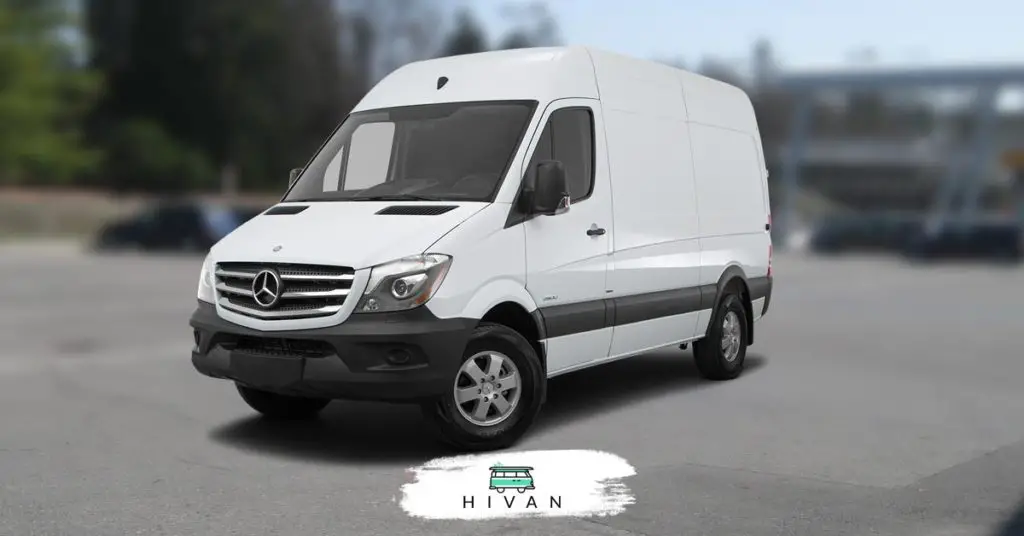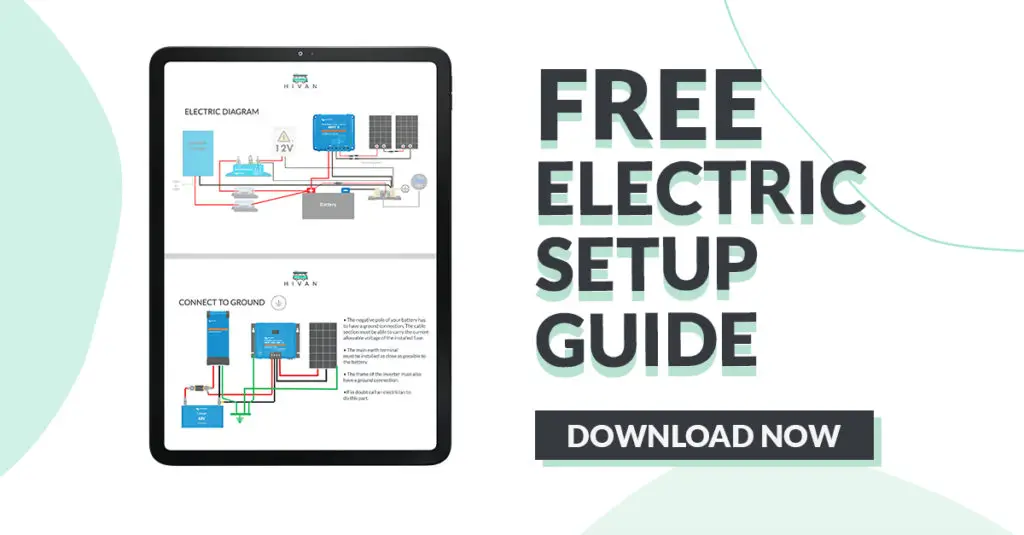Hi-van is supported by its audience. When you purchase using our links, we may earn an affiliate commission (no added cost to you). Learn more
Exploring the great outdoors has been a part of human recreational history for ages. Americans combined their love of the outdoors with the development of automobiles, resulting in recreational vehicle manufacturing growing into a billion-dollar industry. Day vans and camper vans are two such recreational vehicles, and they’re both unique, respectively.

The primary differences between a day van and a camper van are based on how they’re used. Day vans are for quick day trips, whereas camper vans are for traveling, which can also be used as a permanent living space. The two also differ in terms of amenities, weight, costs, and regulations.
If you’re considering purchasing a recreational vehicle or RV, read on for more information about the differences between a day van and a camper van so you can choose what’s best for your needs.
Day Vans Are for Short Trips Only
The main difference between the day van and the camper van lies in what they’re primarily used for.
Day vans, also known as leisure vans or surf vans, are typically used for single-day drives or short trips outdoors. They’re not built to be lived in. At the most, day vans can be used for week-long drives.
They’re typically used for quick trips to National Parks or even to the beach. Day vans are more comfortable than cars or trucks but won’t hold up against camper vans.
In contrast, camper vans are built for long-term usage. They’re also known as motorhomes because camper vans are used by people who prefer to move or work remotely from the great outdoors. They’re built to last for long and consistent usage, especially in the wilderness.
Camper vans are an important part of American camp culture, and the majority of RV manufacturers in America make camper vans rather than day vans.
Camper Vans Are Liveable, But Day Vans Usually Aren’t
The differences between day vans and camper vans in terms of primary usage are due to the amenities between a day van and a camper van.
Day vans are smaller, with limited space to move around and not a great deal of headspace. They may or may not have tables, beds, kitchens, or bathrooms. Typically, there’s enough space to accommodate foldable picnic tables, a small fridge, and basic cooking amenities.
However, camper vans will usually have a fixed bed, fridge, and cooking amenities like a stove. Although some of the more advanced camper vans may have a full-fledged bath area with inbuilt toilets and a plumbing system, they also have portable toilets.
The primary difference is that while a day van may or may not have amenities to sleep, wash and cook in, campervans will have at least one fixed amenity.
Day Vans Are Usually Lighter Than Camper Vans
On average, RVs weigh between 1500 and 6000 pounds (680.39 to 2,721.55 kg) in terms of their dry weight, and that’s before they’re fully loaded with the required gas, water, luggage, and other requirements.
Day vans tend to weigh less than an average campervan by virtue of having fewer fixed amenities. Camper vans lean towards the heavier end of that range and become heavier still when they’re fully loaded.
Because of the weight, day vans are easier to drive around, making them convenient, especially for day or week-long trips where the need is to arrive at the destination to enjoy it sufficiently.
On the other hand, camper vans are essentially a home on the move, hence the name motorhome. That means they have heavy fixed amenities. Additionally, they’ll also be carrying water and waste weight.
The weight makes camper vans hard to maneuver on roads, and people tend to drive to specific parks or camping grounds and park them in place.
The company Roadtrek Motorhomes which manufactures in America was developed due to the founder redesigning an RV to his specific needs, which made the motorhomes smaller, lighter, and easier to drive in.
Day Vans Don’t Have Resale Value Like Camper Vans
Because of the amenities involved, it’s easy to understand that day vans would be cheaper than camper vans.
The additional fixed amenities for camper vans mean additional expenses. Moreover, many camper van manufacturers customize their motorhomes for their clients, resulting in additional costs.
The costs of a camper van will depend on the number and kind of fixed amenities. While things like a bed and a stove may be fairly typical, bathrooms are not. The bathrooms may simply be portable commodes and showerheads.
Alternatively, people may choose to install a full wet room with a functional shower and toilet. Of course, this means installing a plumbing system as well. In RVs with wet rooms, waterproofing is crucial to prevent mold. This alone raises the costs.
Camper vans also tend to be highly specialized, making repairs difficult as they’re expensive. Day vans, being more or less regular vans with a few additional amenities, aren’t as expensive to repair.
However, day vans have virtually no resale value, while camper vans typically have a resale value that’s fairly close to the price when first purchased. Depending on how well the van is maintained and how many upgrades or amenities have been installed, the van’s resale value may be higher than the first purchase.
It’s Easier To Park Camper Vans Than Day Vans
There’s no formal classification of day vans by motor vehicle authorities, while there are regulations for campervans or motorhomes.
Camper vans are usually not allowed to be parked on residential streets without permits. They may not be allowed to be parked in rest areas in specific states.
RV parks do exist, but they have specific standards regarding the vehicles parked there and the period for which the vehicle is allowed to be there. Camper vans can usually park for a few months. However, this may not apply to day vans.
Final Thoughts
Day vans are used for short day or week trips and have fewer amenities than camper vans. Camper vans have, at the very least, fixed beds and are used as a moving home, which makes them heavier and more expensive than day vans. But campervans have better resale value than day vans.
The primary factor to consider when choosing between them is what you’ll be using the van for. If you want to just use the van for short trips, pick the day van. But if you intend on living in the van full time, buy a campervan.
Find this content useful 🙂 ?
Subscribe to our Newsletter and get a free Solar Electric Diagram + shopping list.

